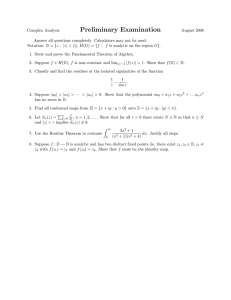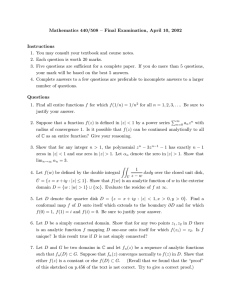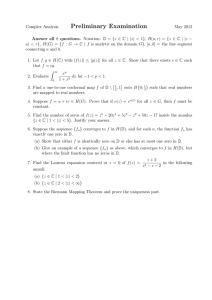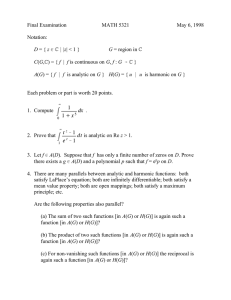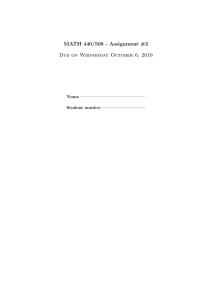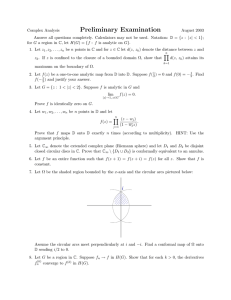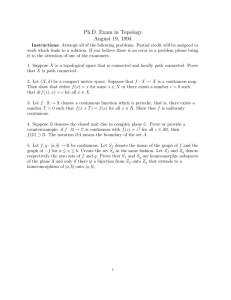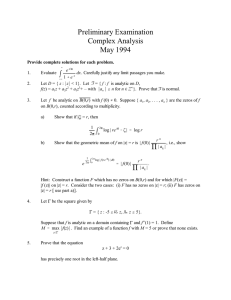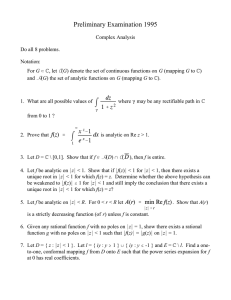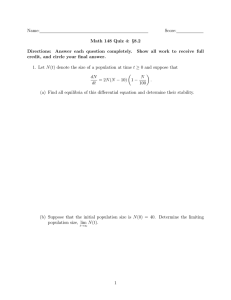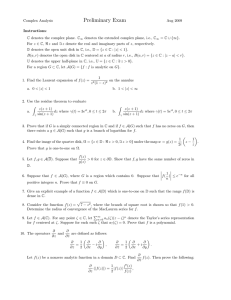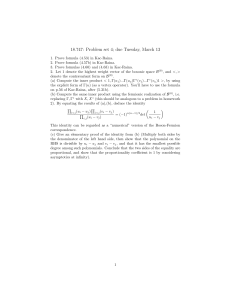Prelimary Examation
advertisement
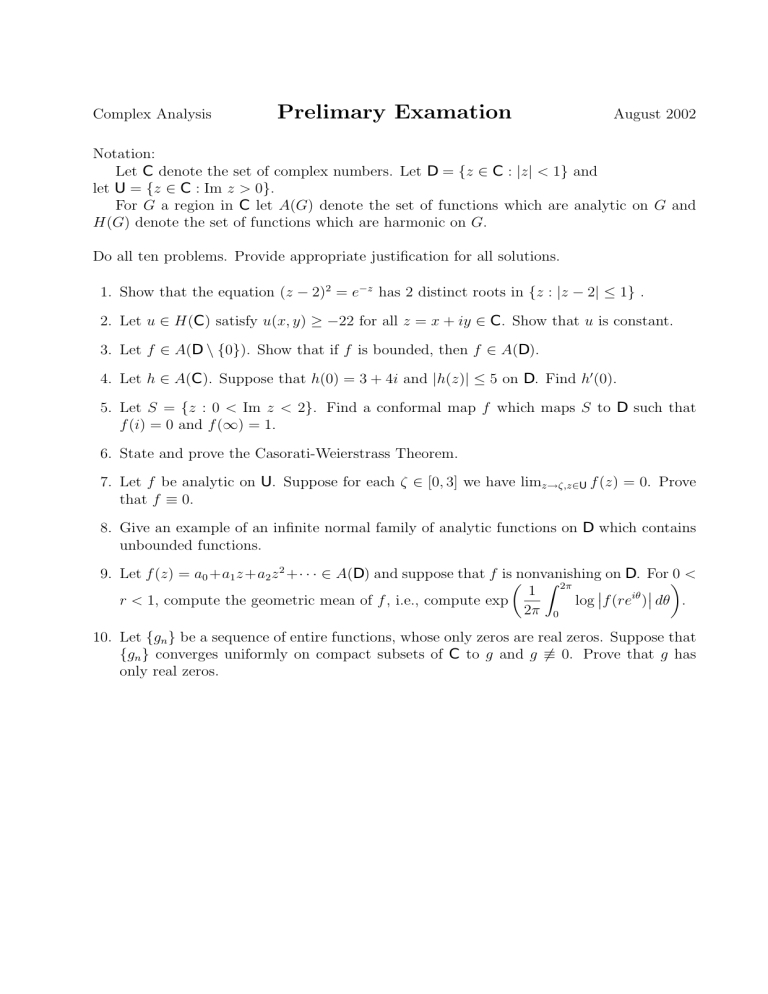
Complex Analysis
Prelimary Examation
August 2002
Notation:
Let C denote the set of complex numbers. Let D = {z ∈ C : |z| < 1} and
let U = {z ∈ C : Im z > 0}.
For G a region in C let A(G) denote the set of functions which are analytic on G and
H(G) denote the set of functions which are harmonic on G.
Do all ten problems. Provide appropriate justification for all solutions.
1. Show that the equation (z − 2)2 = e−z has 2 distinct roots in {z : |z − 2| ≤ 1} .
2. Let u ∈ H(C) satisfy u(x, y) ≥ −22 for all z = x + iy ∈ C. Show that u is constant.
3. Let f ∈ A(D \ {0}). Show that if f is bounded, then f ∈ A(D).
4. Let h ∈ A(C). Suppose that h(0) = 3 + 4i and |h(z)| ≤ 5 on D. Find h0 (0).
5. Let S = {z : 0 < Im z < 2}. Find a conformal map f which maps S to D such that
f (i) = 0 and f (∞) = 1.
6. State and prove the Casorati-Weierstrass Theorem.
7. Let f be analytic on U. Suppose for each ζ ∈ [0, 3] we have limz→ζ,z∈U f (z) = 0. Prove
that f ≡ 0.
8. Give an example of an infinite normal family of analytic functions on D which contains
unbounded functions.
9. Let f (z) = a0 +a1 z +a2 z 2 +· · · ∈ A(D) and suppose that f isnonvanishing
on D. For 0<
Z 2π
1
r < 1, compute the geometric mean of f , i.e., compute exp
log f (reiθ ) dθ .
2π 0
10. Let {gn } be a sequence of entire functions, whose only zeros are real zeros. Suppose that
{gn } converges uniformly on compact subsets of C to g and g 6≡ 0. Prove that g has
only real zeros.
